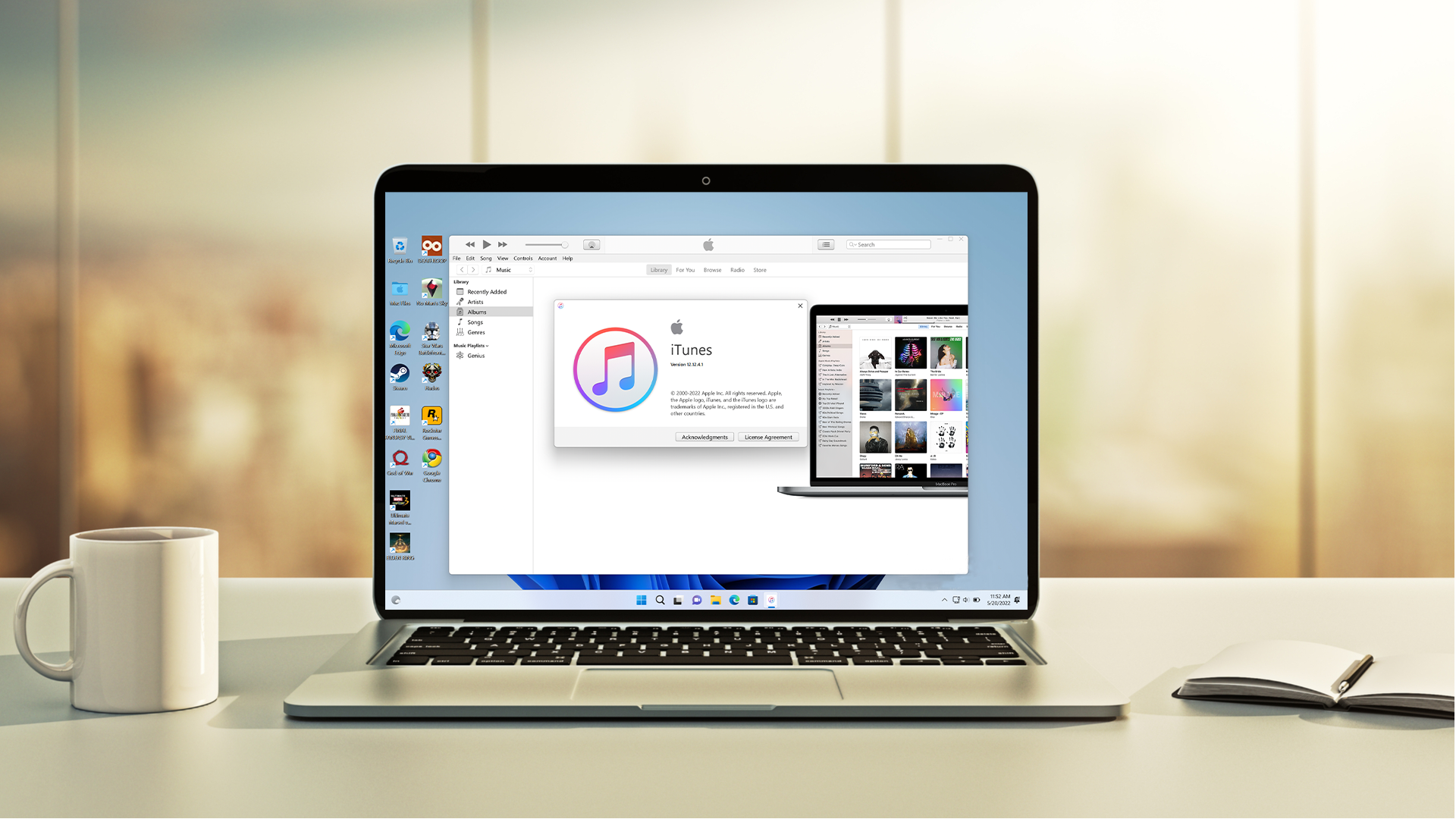This local privilege escalation vulnerability in iTunes could spell big trouble for Windows users
iTunes flaw could cause unauthorized data access on Windows systems

November 11: TechRadar Pro wrongly attributed the vulnerability research to Cyfirma. This has now been corrected.
A security vulnerability affecting users of iTunes on Windows systems has been discovered by security researcher Mbog14.
This local privilege escalation vulnerability, classified as CVE-2024-44193, allows attackers with limited access to elevate their privileges, potentially compromising entire systems.
The vulnerability, present in iTunes for Windows version 12.13.2.3 and earlier, poses a critical threat to the security of systems, making timely updates and patching essential.
Urgent iTunes update addresses this escalation risk
The core issue behind CVE-2024-44193 lies in improper permission management, specifically related to the AppleMobileDeviceService.exe.
Attackers can exploit the CVE-2024-44193 vulnerability by manipulating the files within the C:\ProgramData\Apple\Lockdown directory. With inadequate permission settings, even low-privileged users can write arbitrary files to this directory, enabling attackers to create opportunities for privilege escalation.
This vulnerability is not difficult to trigger, and thus makes its exploitation particularly concerning, as attackers can use various tools, such as NTFS junctions and opportunistic locks, to craft sophisticated exploit chains resulting in the execution of arbitrary code with elevated privileges.
The exploitation of CVE-2024-44193 follows a structured sequence of steps, allowing attackers to manipulate the AppleMobileDeviceService.exe and gain elevated privileges. First, attackers create arbitrary files within the Lockdown directory, leveraging tools like Oplock to halt processes at key moments. They can then exploit NTFS junctions, which redirect file deletions to critical system areas.
Sign up to the TechRadar Pro newsletter to get all the top news, opinion, features and guidance your business needs to succeed!
These actions culminate in the deletion of essential system files, giving the attacker administrative access. The ease of exploitation, combined with the widespread use of iTunes, particularly in enterprise environments, increases the vulnerability's risk profile. Organizations are urged to update iTunes to version 12.13.3 or later to mitigate the risk.
The impact of this vulnerability is severe, as it grants attackers administrative-level access to the targeted system. With SYSTEM-level privileges, attackers can manipulate system files, install malware, access sensitive data, and even disrupt services. This makes CVE-2024-44193 a critical risk for organizations, particularly those with large numbers of unmanaged or outdated systems running vulnerable versions of iTunes.
At the moment, there is no confirmed evidence of this vulnerability being actively exploited in the wild and there is also no active discussion of this vulnerability in underground forums. However, its potential for widespread use remains high due to the low complexity of the attack.
CVE-2024-44193 affects iTunes for Windows globally, impacting a variety of industries that rely on Windows-based systems. Media and entertainment, education, government, and corporate environments are particularly vulnerable due to the widespread use of iTunes. Additionally, organizations handling sensitive data or operating in high-risk environments may face increased exposure to attacks.
More from TechRadar Pro
- iTunes app in Windows 11 has been replaced with four new apps
- What is cloud backup and how does it work?
- Want Windows on your iPhone? Microsoft's made it happen

Efosa has been writing about technology for over 7 years, initially driven by curiosity but now fueled by a strong passion for the field. He holds both a Master's and a PhD in sciences, which provided him with a solid foundation in analytical thinking.